Check out some books by your tutor Fiona Veitch Smith … (click on the book covers to find out more)
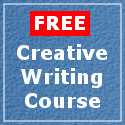 Hello everyone, welcome to the first session of our free online creative writing course. Over the next eight sessions we will be looking at different aspects of creative writing and trying our hand at various forms. I’d strongly encourage you to have a go at the exercises along the way, and please feel free to leave comments or ask questions at the end. If you have arrived on this page without first reading the home page and frequently asked questions page (on tab above) please go back and do so now. If you have read them, enjoy the course!
Hello everyone, welcome to the first session of our free online creative writing course. Over the next eight sessions we will be looking at different aspects of creative writing and trying our hand at various forms. I’d strongly encourage you to have a go at the exercises along the way, and please feel free to leave comments or ask questions at the end. If you have arrived on this page without first reading the home page and frequently asked questions page (on tab above) please go back and do so now. If you have read them, enjoy the course!
Creativity and Art
What is creativity? The Collins dictionary defines it as ‘the ability to cause something to exist’. Without getting into too much of an existential discussion, I would say that with every thought that is expressed, something has been created. It was Descartes who said: ‘I think, therefore I am’; well I would add, ‘I think, therefore I create’ (do you feel a God complex coming on?). But how do we express our thoughts? Sometimes we do it verbally, other times by body language and still again through what is loosely termed ‘art’.
Art takes place when a thought is expressed and fixed in a way that other people may experience it on an aesthetic level – through music, writing, painting, sculpture, choreography and so on. Many artists say that their best work takes place when they ‘by-pass’ the thought and simply express the feeling. This may be true, but for writers, who use a verbal medium, a feeling must first be converted into a thought before it can be put into words. Don’t over analyse the thought before you express it, as this way you can ‘channel’ the purest interpretation of the feeling, but some cognitive process needs to take place. Some writers prefer to mull over a thought and give it form before they put pen to paper – I’m one of them – but it’s good practice to try and switch off the ‘editor’ at least for the first draft. First response trigger exercises are useful in this regard and can release some unexpected words and images.
Exercise 1:
Write down your first response to these words or phrases:
- Blue ball
- And that’s when the sadness came
- Coffee
The first task of a good writer is to convert feelings into thoughts and then into words. This is the raw material that can then be converted into something more permanent. Some writers refuse to toy with their first drafts, believing their creativity will be diluted; I disagree. Allowing your critical mind to improve a piece of writing is where the craftsman meets the artist. Something produced only by the former will lack soul and something by the latter will lack form. Good writing is a combination of art and craft.
For public consumption
Art, of course, is highly subjective and one woman’s masterpiece is another woman’s unmade bed. We all have the ability to create, but whether or not our creation is ‘art’ must be left to the eye or ear of the beholder.
In this session we will look at how you can craft those creative thoughts into creative writing to share with other people. And that’s what sets ‘public’ writing apart from ‘private’ scribblings – there’s a perceived readership in mind. When I ramble on in my journal, I am the only one who will read it (hopefully!) so my only concern is getting my thoughts down on paper. The moment I want someone else to read it I begin to consider ways to improve the presentation and craft it into something more aesthetically pleasing. I consider which words may sound more colourful, whether or not my sentence structure is grammatically correct, whether I’m using evocative imagery, and so on.
Story, feeling or image?
What is it about those creative thoughts that you think might be of interest to other people? Do they speak of an eternal truth or a common experience? Do they make you laugh or cry? Do they suggest a story that will entertain or a poem that captures a moment that must be shared?
Exercise 2: In 50 words or less write down why you want to write then list three creative thoughts that you’ve had lately (each 10 words or less). These may be an image, a musing, a ‘truth’, a story, or so on. If you haven’t had any, take yourself for a walk and look around; what grabs your imagination? Browse through a newspaper or a magazine; do any stories or pictures catch your attention? Think back over your day; did anything funny, charming, shocking or unusual happen to you or someone you know?
Poetry or prose?
Some people are more suited to writing poetry than prose and some people do well at both. Although we won’t be discussing it in this course, other people are more suited to script. I’m one of them. I’ve had relative success as a prose writer and in fact have managed to earn a living from it, but it’s taken years of hard work to get to this point. I recently branched out into scriptwriting and found that I had much more of a natural ability. (If you’re interested in finding out more about scriptwriting, check out getting started in playwrighting). You may find that you’ve been trying to make it as a poet when actually you’re more suited to prose. Now I don’t want to pigeonhole anyone, but ask yourself the following questions:
- Are you more attracted to films than stills?
- Do you enjoy telling people ‘stories’ from your life?
- Do you prefer to read stories or poems?
If yes, to these, then you may be more suited to prose than poetry. If no, then the opposite may be true. If it’s ‘sometimes yes, sometimes no’ then perhaps you are suited to both. We shall be looking at how to write poems in more detail in session 7, but suffice to say, a poem is like a snapshot of a moment. If you can’t rest until you know what happened before and after, then prose may be your genre.
Exercise 3: Take one of the three creative thoughts you wrote down in Exercise 2, then list 20 separate words that communicate or describe that thought. Do not, at this stage, link the words into sentences. Once you have your 20 words use them in a poem of 16 lines or less. Then, take the same 20 words and work them into a short story of under 300 words. Which exercise came more easily? Which form has best communicated your creative thought?
Further Resources:
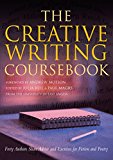
There are some excellent resources out there for creative writers. To get quick ‘starter’ images when your own well is dry I recommend The Writer’s Block by Jason Rekulak. I’m currently working through The Creative Writing Coursebook by Julia Bell and Paul Magrs and finding it very useful.
The next creative writing course session is how to write a short story. But before you move on to that, please feel free to leave a comment or ask a question in the box below.
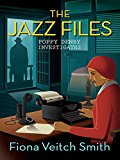
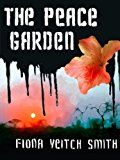
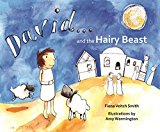
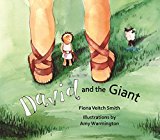
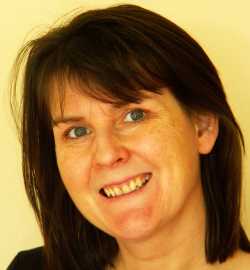 Welcome to The Crafty Writer's free online creative writing course, presented by Fiona Veitch Smith, a freelance journalist, editor, author, playwright, screenwriter and writing teacher. I hope that you'll see a dramatic improvement in the quality of your writing as you work through this course.
Welcome to The Crafty Writer's free online creative writing course, presented by Fiona Veitch Smith, a freelance journalist, editor, author, playwright, screenwriter and writing teacher. I hope that you'll see a dramatic improvement in the quality of your writing as you work through this course.
So happy to have come upon this course! Thanks for putting this out here for us to explore.
It’s just what I was looking for.
Can’t wait to continue!
you’re welcome, Lydia.
Gonna give this course ago.
i am trying to do my very best so can you alll please help me.
What specifically do you want help with, Auneaka? If it’s a question about how the course operates then ask away, if it’s to do with feedback on your writing, please read my comments on this in the introduction.
This is so great of you to provide this course for free! I’m eagerly wanting to “break into” the freelance writer world and this is a wonderful start! I wish you much success in whatever you do!!
You’re welcome, Tenesia. If you want to break into freelance writing then I suggest you also do my free non-fiction course which deals extensively with how to operate as a freelance http://non-fiction-writing-course.thecraftywriter.com/
Happy writing
Fiona
I just finished exercise three. I dont know how a poem is structered, but i went for it. as usual i like what i came up with but after reading it over and over again i begin to think its juvenile and dumb. That being said i enjoyed it immensely…… the poem well i call it a poem anyway flew right out of me thanks to this exercise.
Dear Teddy, don’t allow your nay-saying editor to get you down. This was a simple exercise to get the old creative juices flowing. And seeing it ‘flew right out’ of you, then it’s achieved its purpose. There’s time for structuring and improving it later. Happy writing.
Fiona
Thank you for offering this service, learning a lot by the resources you have provided!
i am trying to write poetry about everything on the positive level, i need some encouragement on how i can write poetry that i can win in the contest.
There is a specific session on writing poetry here http://creative-writing-course.thecraftywriter.com/how-to-write-poems/
Thank you so much for offering this course. Although writing is what I’ve been dreaming of doing, I didn’t really know where to start. This course is just what I was looking for!
thanks
I really enjoyed this exercise. It was challenging and I loved it. It really surprised me on how easily the poem came out of me. Normally it takes me HOURS to write a decent poem. This one turned out surprising well, which is good for me.
Thank You.
Glad it helped, Danielle. Sometimes a quick exercise like this can help you by-pass your internal editor.
This sentence was my biggest takeaway:
“The first task of a good writer is to convert feelings into thoughts and then into words”.
Hi.Fiona. I finished the 1st three questions on Releasing You;re Creative Writing,and I didnot find it too dificult. But the net part.I am not sure of.Janice.
This was a good beginning. It surprised me how easily the poem came however the short short story was equally as quick. Good for me, right? I am looking forward to the next part but trying not to rush through anything. Thank you for this!
Thank you very much for this online course. It is very nice of you to teach us and share your knowhow. I really appreciate it. You see I am just at home in my computer recovering from brain surgeries (brain tumour) but recovering very well in God’s grace. Can’t believed it didn’t affect my brain memory wise and got the itch to do some blogs and simple article writing at hubpages. I am struggling and came across your site. Thank you and godbless your good heart.
Good for you
Glad to be of help, Lenny. And I thank God you’re on the mend. May He continue to bless you.
Being a person who was very fond of writing and got crippled and went into coma and recovering this site and course is truly amazing .thank you for finding the time and patience.
You’re welcome Amanda. I hope you rediscover the joy of writing.
I was surprised to find your site. My attempt to create a short story about my younger years does not feel impossible now that I have learned some of the basics of writing through your site…I hope to do well and will stay in touch..thanks.
Glad to be of service, Rick. Hope you enjoy writing the story.
Fiona
I’m so glad for something like this. I haven’t written poetry in far too long, and every story I’m working on currently has been put on hold by writer’s block. It’s nice to find a way to both work on my format and find ways to re-capture my muse. I hope this helps others as much as I hope it helps me. God Bless. =)
Thanks Katerina. Hope your muse returns.
So glad I found your website. You are unreal to be prepared to teach us . I will work thru your exercises and hopefully learn.
Thanks for this very helpful website. I did the three exercises and enjoyed them.
I wrote the poem and the little short story, both pretty easily, surpisingly.
So far, this is fun. Tomorrow I will embark on second assignment Thanks. i LOVE free.